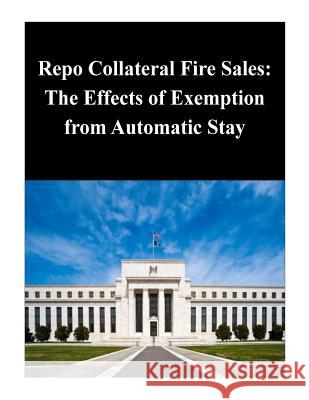Repo Collateral Fire Sales: The Effects of Exemption from Automatic Stay » książka
Repo Collateral Fire Sales: The Effects of Exemption from Automatic Stay
ISBN-13: 9781503283497 / Angielski / Miękka / 2014 / 48 str.
What are the consequences of a potential fire sale stemming from the exemption of repurchase agreements (repos) from automatic stay? This paper shows that repo's exemption from stay alters firms' financing and investment decisions ex ante. Specifically, a stay exemption changes firms' investment opportunity set, enabling them to purchase assets of defaulted firms at fire sale prices. Fire sales arise endogenously because of limited capital available to purchase collateral posted by insolvent firms, i.e., cash-in-the-market pricing. A fire sale effectively creates a premium for holding on to dry powder and concentrates asset ownership with firms that have preferences to hold highly leveraged positions and risk default. The premium reduces the initial asset price, potentially inducing more firms to take on risky positions, increasing the fraction of defaulting firms in the economy. In contrast, when repo is subject to automatic stay secured lenders do not receive their collateral immediately, reducing the severity of a fire sale and ex ante price distortions.
Zawartość książki może nie spełniać oczekiwań – reklamacje nie obejmują treści, która mogła nie być redakcyjnie ani merytorycznie opracowana.











